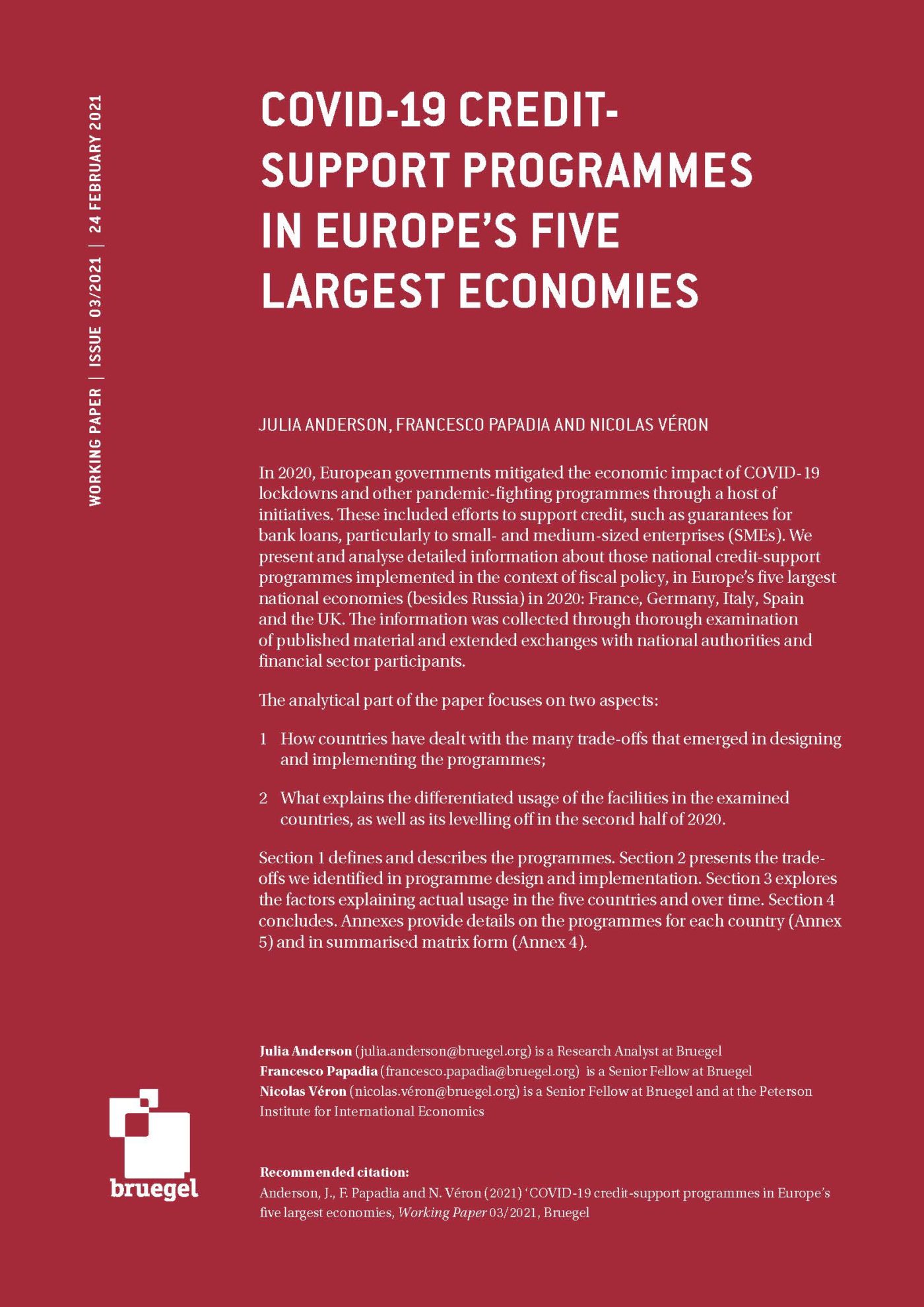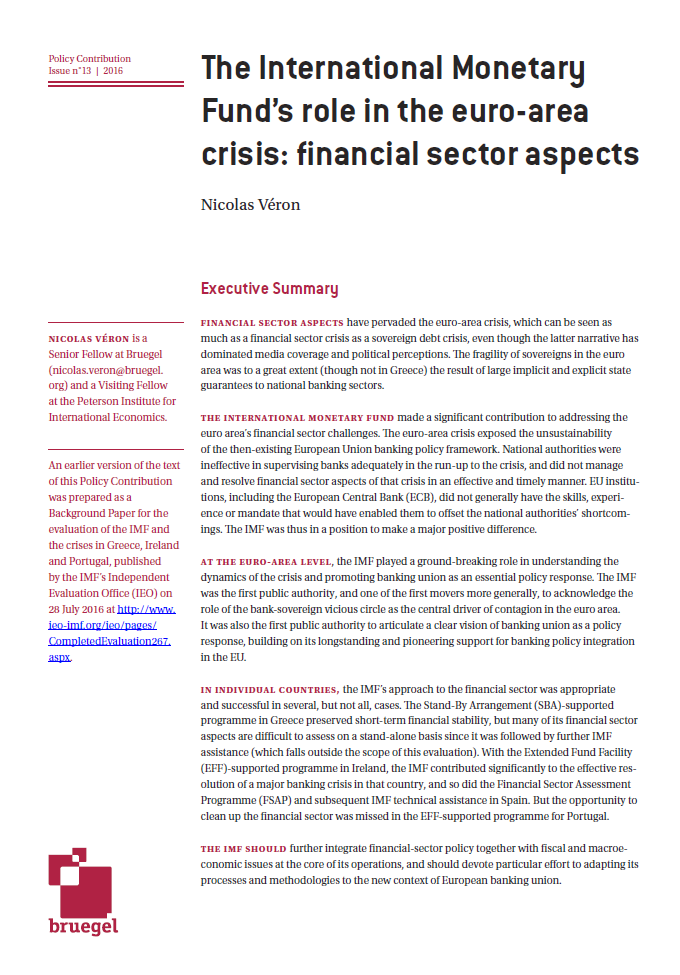Working Paper

COVID-19 credit-support programmes in Europe’s five largest economies
This paper assesses COVID-19 credit-support programmes in five of the largest European economies, and examines how countries have dealt with trade-offs raised by the programmes.









